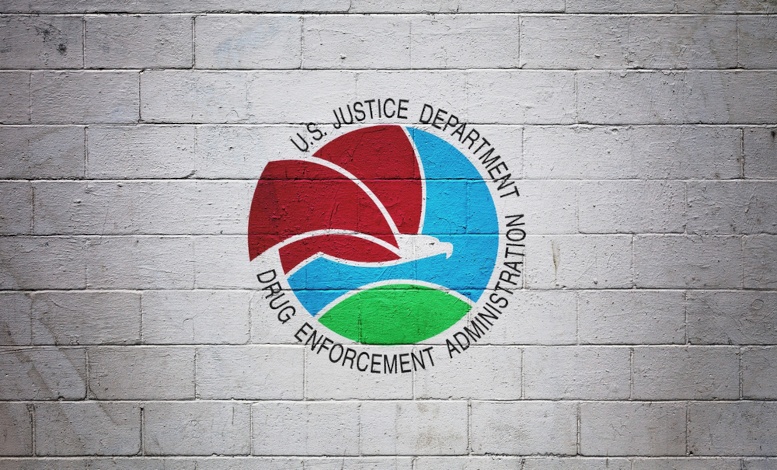An agent of the U.S. Drug Enforcement Administration (DEA) who was fired in 2019 over a drug test has filed suit against the agency.
Anthony Armour, who worked in DEA efforts fighting opioid trafficking, promptly admitted he was self-medicating with CBD after a random drug test showed over-the-limit traces of THC, according to his lawsuit. He was fired for violating the agency’s drug-free workplace policy.
A 15-year DEA veteran and former football player, Armour said he turned to CBD after conventional pain medication failed to give him relief for injuries suffered in both his law enforcement and sports careers.
‘No nexus’
The lawsuit, filed Friday in the U.S. Court of Appeals for the federal circuit, argues that the DEA failed to provide evidence that Armour ever “used or possessed illegal marijuana” and that firing him constituted excessive punishment. The lawsuit also observes that there is “no nexus” between Armour’s use of CBD oil and DEA’s drug enforcement mission.
“DEA had no memos, regulations, directives, or guidance related to or concerning employee use of CBD products or the risk of testing positive for marijuana” when Armour began using the compound, the lawsuit argues, noting the agency did not release warnings to agents about using CBD until its investigation of Armour was underway.
“The same day DEA amended its Personnel Manual, DEA proposed Armour’s removal based solely on a charge of use/possession of drugs,” the lawsuit claims.
Unitentional
“At best, (Armour) displayed negligence or poor decision-making, not that he intentionally used marijuana,” his lawyers argue. “Nor was he on clear notice that use of CBD products could lead to a use/possession of marijuana charge.”
After the 2018 Farm Bill legalized hemp and downstream products such as CBD, “this change meant new opportunities—particularly as to CBD, a non-THC cannabinoid in the cannabis plant,” according to the litigation. “Armour hoped CBD oils could play a role in his pain management.”
Tests that led to Armour’s firing showed the presence of THC at a level of 0.35%, beyond the federal limit for hemp products of 0.30% THC concentration on a dry weight basis. Rules provide tolerance of 0.08%, making the outside limit for THC 0.38%. But the lawsuit claims DEA arbitrarily reduced the tolerance to 0.04 percent THC, meaning Armour’s test was over the limit by 0.01%. Laboratory analysis showed that two of three products Armour voluntarily gave DEA contained less than 0.30 percent THC, the lawsuit also observes.
The U.S. Food & Drug Administration (FDA) has repeatedly warned that many CBD products, which are widely available but unregulated, often contain THC beyond the federal limit, and that many are otherwise adulterated.
Oversight
The 2018 Farm Bill reasserted the FDA’s authority to regulate hemp products (including CBD) that contain 0.30% or less THC, and gave the DEA sway over hemp-derived products that carry more than that amount.
The DEA has repeatedly inserted itself into rulemaking for industrial hemp, suggesting that the legalization of hemp causes problems for law enforcement, which has long warned that hemp can be a shield to criminals in states where marijuana growing is allowed. In 2020, the agency published an interim final rule that clarified its authority to regulate all hemp-derived products, regardless of their THC content.
The FDA last month called on Congress to set a framework for CBD through legislation, saying current federal safety standards are insufficient to manage the products. There are some indications that the agency is poised to declare CBD a controlled substance.
Lawmakers have warned that FDA’s failure to regulate CBD leaves the door open for nefarious business operators, and threatens consumers’ health.

